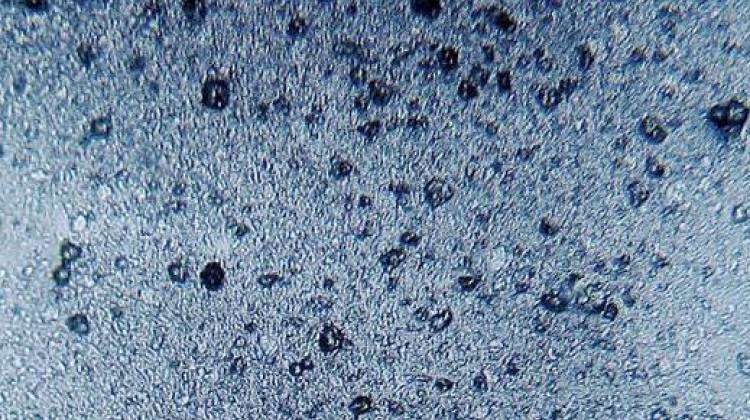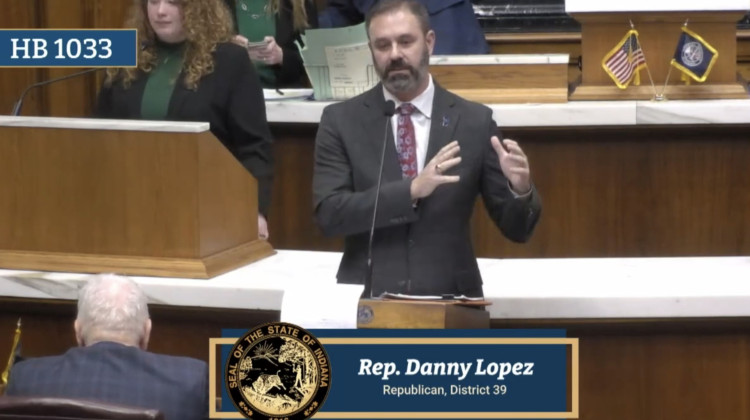
Microplastic spherules in tooth paste, about 30 micrometers in diameter.
Photo by Dantor, CC-BY-SA-3.0A House committee Wednesday unanimously passed a bill that would make Indiana one of the first states in the nation to ban the use of tiny plastic particles, known as microbeads, in personal care products.
Microbeads are found in a wide variety of beauty and personal products, including soaps, lotions and even toothpaste. The problem, says researchers, is that those microbeads are showing up in the water system.
Loyola University Chicago professor Tim Hoellein has found microbeads in rivers all around Chicago and notes that waste water treatment plants can’t filter them out.
“They get to the waste water treatment plant and because they’re so buoyant and persistent, resistant to decomposition, they can largely float through the process,” Hoellein said.
Researchers in New York tested 18 different species of Great Lakes wildlife and found microbeads inside all of them. And Hoellein says what’s troubling is that bacteria and industrial pollutants stick to the surface of microbeads.
“It turns out that they concentrate PCBs and other organic pollutants in a way that doesn’t happen on organic kind of surfaces,” Hoellein said.
The bill would ban Indiana companies from including microbeads in their products beginning in 2018 and would ban the sale of any personal care products that contain microbeads in 2019.
 DONATE
DONATE








 Support WFYI. We can't do it without you.
Support WFYI. We can't do it without you.